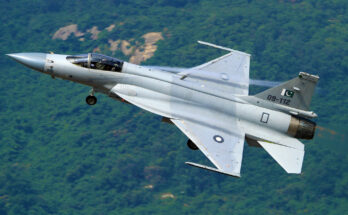An annual parliamentary report on the state of the Bundeswehr indicates that the ongoing struggles of Germany’s armed forces show little sign of reversal in the near future.
Despite a greater infusion of funding in recent years – with the current earmark involving a top-up of $5 billion, bringing the baseline budget up 12 percent over 2018 – Germany continues to suffer from equipment and personnel shortages, with excessive bureaucracy and slow procedures impeding progress, according to the author of the report, Bundestag military commissioner Hans-Peter Bartels.
The residual equipment issues of the Bundeswehr have become fodder for agitated, impatient NATO allies – particularly the United States. Despite its national wealth and an economy ranking among the world’s five largest, Germany traditionally has remained one of NATO’s many budgetary laggards. Even with healthy upticks in funding over the past several years, the defense budget still amounts to just 1.2 percent of GDP, well below the Alliance minimum requirement of 2 percent.
While Germany’s low level of spending commensurate with national wealth has been less of an issue for its Euro-NATO partners, the greater concern for core security partners such as France and Britain remains the operational shortcomings of the Bundeswehr.
Despite efforts to patch serviceability rates for equipment, expand the size of the Bundeswehr through an aggressive recruitment campaign, and reduce the gap in military hardware procurement cycles, little progress appears to have been made.
The latest report underlines lingering issues from years past, such as the lack of availability in the German Air Force’s fleet of A400M tactical transport aircraft and Eurofighter Typhoon and Panavia Tornado combat jets. The German Navy had zero submarines available to them in 2018; in addition, a new frigate type – the F125 – was delivered to but not accepted by the service. The Army’s main battle tank, the Leopard 2, also suffers from a lack of spare parts and sufficient work-up to bring the fleet into operational readiness.
As such, German troops continue to rely on civilian helicopter contractors to ferry them about in the Afghanistan theater, and have to borrow basic equipment such as body armor while deployed. These conditions render German contributions to security missions under an EU- or NATO-led mandate less than optimal, as its troop deployments lack proper logistical support and effective firepower capability. The end result is a lessened ability to deploy to out-of-theater missions, plus a shortened sustainability level in a conflict zone if engaged.
Backfilling the Bundeswehr with fresh recruits also remains a work in progress, devoid of much forward momentum. While the government has set out a goal for the Bundeswehr of having 198,500 active personnel by 2025, to date the military is composed of 181,000 – with the number of new recruits dropping from 23,000 in 2017 to 20,000 in 2018 (the lowest such figure in Bundeswehr history). On top of this, 21,500 officer and non-commissioned officer positions remain unfilled.
Worse for the Bundeswehr is that key specialist roles – such as medical staff, engineers, cyber and IT management, and logistics officers – all suffer personnel gaps.
Years of neglect, a tight private-sector labor market, a broken supply chain, and a post-World War II pacifist culture all make strengthening the Bundeswehr an uphill battle for the German government. The latest report merely underlines how difficult the struggle remains.

Dan Darling is Forecast International’s director of military and defense markets. In this role, Dan oversees a team of analysts tasked with covering everything from budgeting to weapons systems to defense electronics and military aerospace. Additionally, for over 17 years Dan has, at various times, authored the International Military Markets reports for Europe, Eurasia, the Middle East and the Asia-Pacific region.
Dan's work has been cited in Defense News, Real Clear Defense, Asian Military Review, Al Jazeera, and Financial Express, among others, and he has also contributed commentary to The Diplomat, The National Interest and World Politics Review. He has been quoted in Arabian Business, the Financial Times, Flight International, The New York Times, Bloomberg and National Defense Magazine.
In addition, Dan has made guest appearances on the online radio show Midrats and on The Media Line, as well as The Red Line Podcast, plus media appearances on France 24 and World Is One News (WION).




